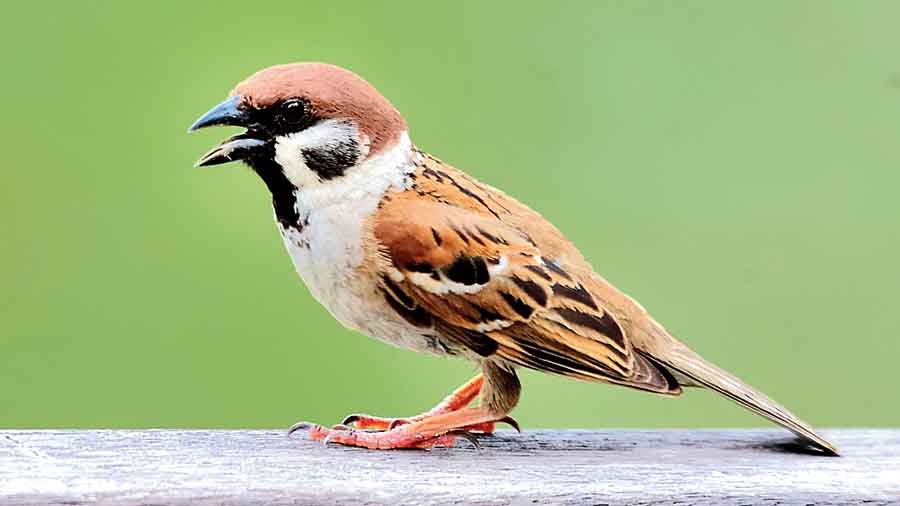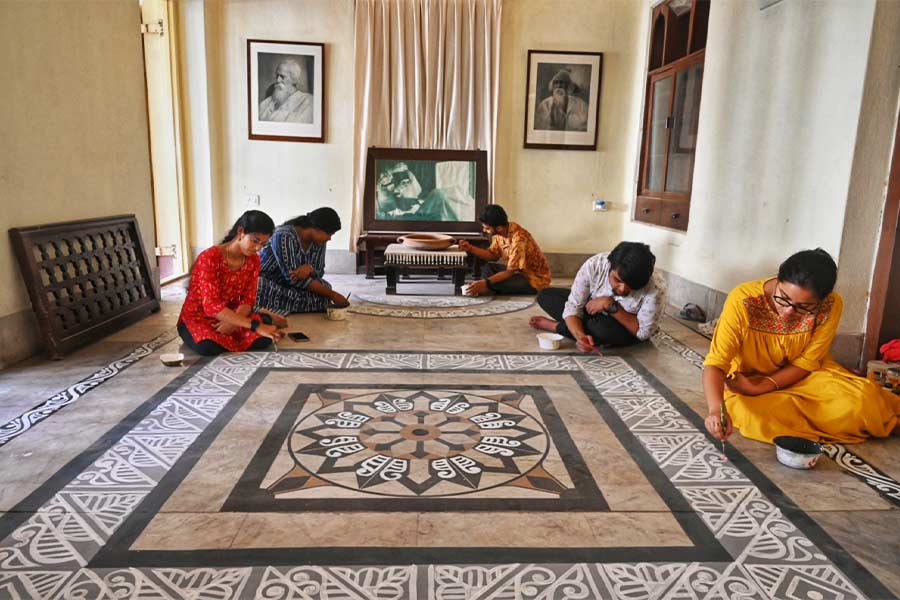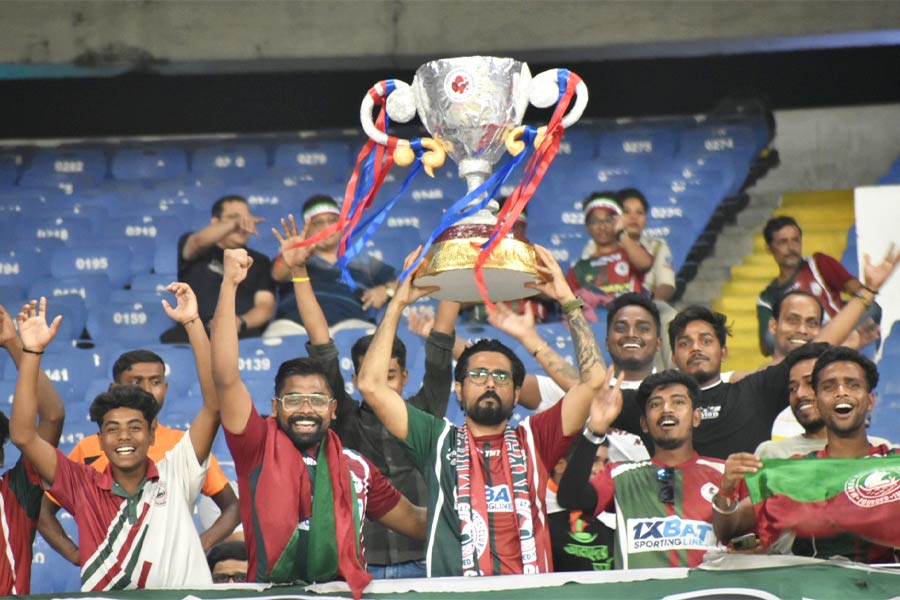Are sparrows really disappearing from the cityscape? What about crows? Is the bird feeder you bought for your garden actually helping the winged visitors?
New Town Business Club hosted a talk for bird lovers where Biswajit Roy Chowdhury, an expert on the subject who is the founder-secretary of Nature Environment and Wildlife Society, fielded such queries.
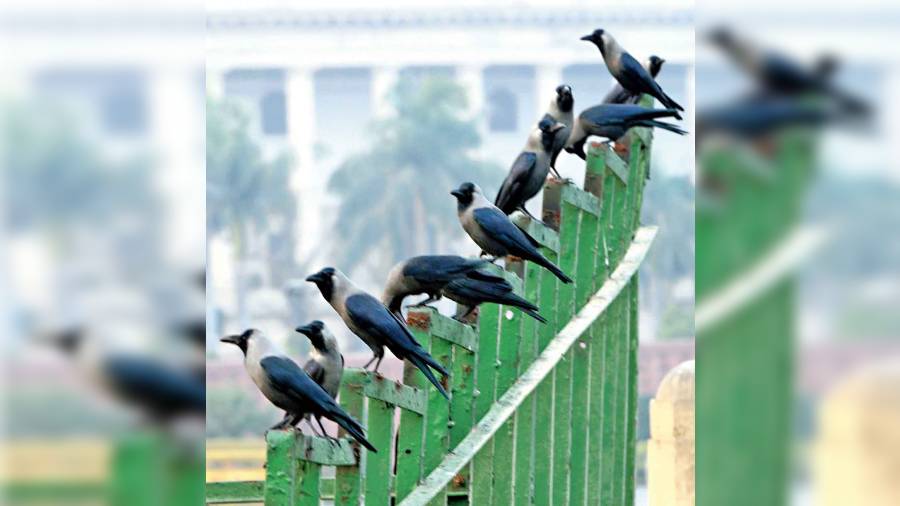
A murder of crows
Less crows & sparrows
The very first query was posed by Debashis Sen, managing director of Housing Infrastructure Development Corporation (Hidco). He wanted to know if the crow and sparrow population in the city was indeed dwindling.
To this, Roy Chowdhury assured that the crow population was fine. “The reason we no longer see as many crows is because the garbage disposal system in the city has got more organised. Previously people would litter everywhere and crows would feast on them. Now, instead of vats around every corner, garbage is accumulated centrally,” he said. So the Dhapa garbage dump is still well-populated by the black birds.
But sparrows (chorai) are indeed suffering as modern houses no longer sport the ghulguli (ventilators/ sun shades) above doors. That’s where sparrows would live.
Sen asked for guidance from the experts. “People spend lakhs and crores on buildings so surely they can spend thousands on an architectural intervention that can protect birds. We are open to input in case we need to amend building rules in such respects,” Sen said.
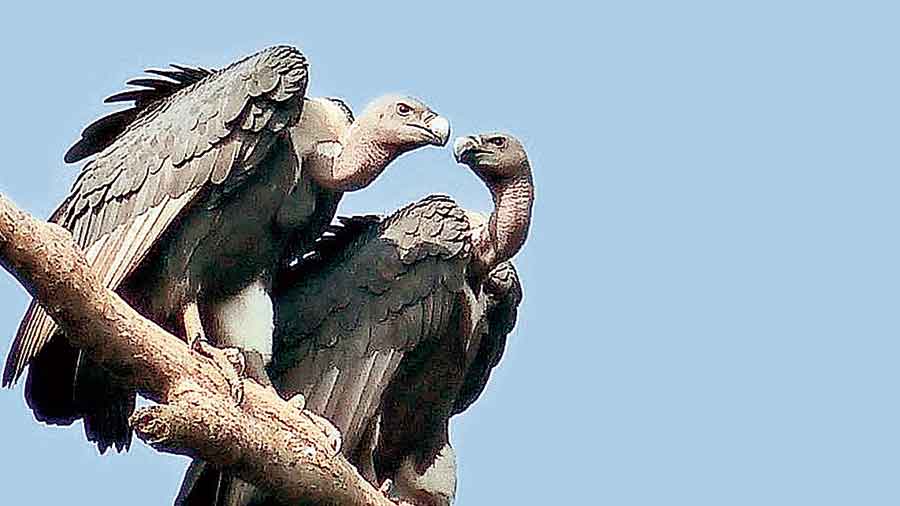
Vanishing vultures
Roy Chowdhury pointed to a sad phenomenon that was affecting the vulture population in the country. “Vultures are known to scavenge carcasses of cows and other cattle but before dying, if these cows were ill or in pain, they are often administered a painkiller by quacks called Diclofenac,” he explained.
This drug affects the kidneys of vultures when they ingest the carcasses. “Their heads start drooping and they die. We have been trying to create awareness among vets to not prescribe this medicine but there are quacks who don’t listen. Vultures could be the world’s fastest extinction,” Roy Chowdhury noted.
Bird feeders
Nature lovers these days hang up feeders to offer birds some food and water. Roy Chowdhury welcomed the idea but asked people to avoid products that looked too modern, ie. made of plastic or with flashy colours. “Birds will intentionally avoid them. Go for feeders with an earthy, natural look,” he said, adding that sparrows prefer grains and khoot, while parakeets dhaan and fruits.
Do not offer glucose, however; regular water is best for birds.
Breeding in captivity
The expert said that it was difficult to make birds breed in captivity and so the job was best left to scientists. “It’s simple in case of Lovebirds and Budgerigars but not all kinds of birds. Even kokil and shalik won’t lay eggs in cages. Captive breeding of vultures is being done scientifically now,” he said.
Safe haven in New Town
Sen was delighted that some birds, that are rarely seen elsewhere in the city, were making Eco Park their home. “The space near the proposed high court has been assigned Red Munia Zone on Google (see related story on Page 5). We have even developed a haven for birds called Pakhibitan in Eco Park along with Nature Mates. We have to find a balance between development and nature,” he said.
Roy Chowdhury credited the Eco Park management for having been able to keep the space safe for birds despite the crowds. “Birds usually forage at dusk and dawn, while maintaining their social life in between. Eco Park clearly provides them the opportunity for all this,” he said.
He shared how in many places, birds don’t feel safe as people target them with catapults and pebbles. “The pipit is hit, caught, cooked and eaten in villages.”
Roy Chowdhury also explained how birds rescued at haat (market) raids are sometimes released at Eco Park. “Birds like the phultushi do fine when released here. Even chandana, that isn’t actually an urban bird, has adjusted well. But birds like myna, that are native to north Bengal in our state, would have a tough time if released at random outside places like Bikash Bhavan in Salt Lake. The environment, climate, topography needs to be checked before releasing smuggled birds.”
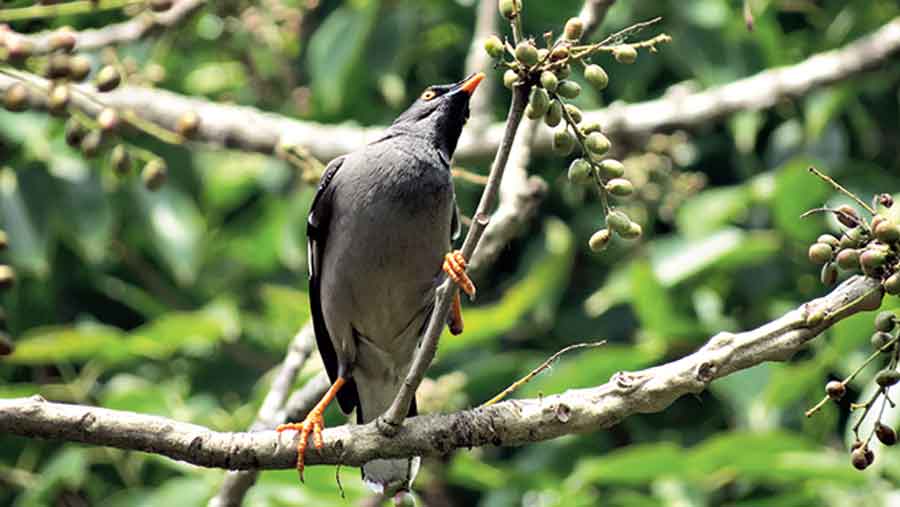
Rescued mynas should not be released in urban settings
Plant trees for birds
Roy Chowdhury drew attention to urban forestry programmes.
“When I was little, Kolkata had very few trees. Then in the 1980s social forestry started but much of it was unplanned. A tree like chhatim bears fruits that birds aren’t fond of. Nor do they like to build nests on it. And why are there so few neems? They’ve planted acacia in place of banyan but accasia does not attract birds. Krishnachura draws no birds either. Guava trees are good for birds but we don’t have enough of them,” he observed.
The authorities, he complained, fell age-old banyan and ashwattha trees to widen roads and when confronted, plant five saplings in lieu of every tree razed. “But there’s no comparison between the two,” Roy Chowdhury said. “When an age-old tree is felled, along with the plant, they are burying birds, ants, butterflies, rats and an entire biodiversity that lives on or under the tree,” he said.
Sen invited their input but said they have to listen to all parties. “Some groups want trees that house birds while others want shady trees, high level of oxygen-producing trees, immunity-building trees…But we are open to suggestions.”
Write to saltlake@abp.in


